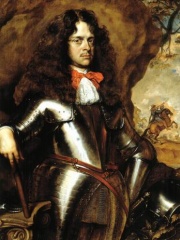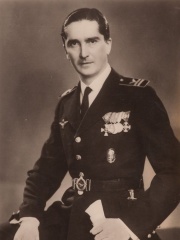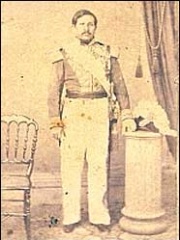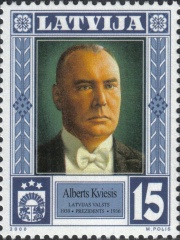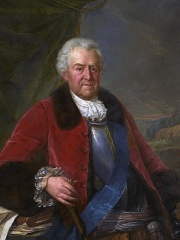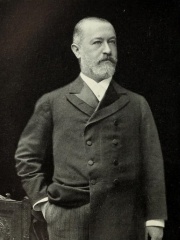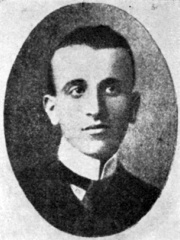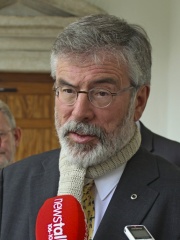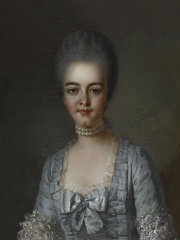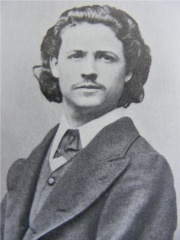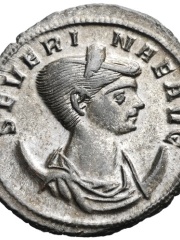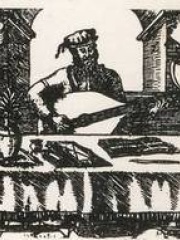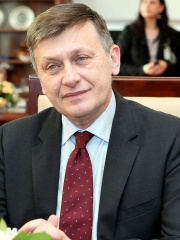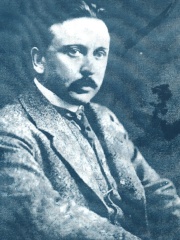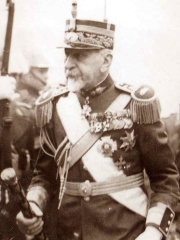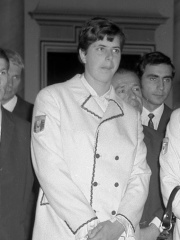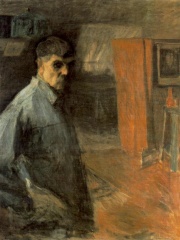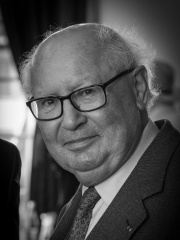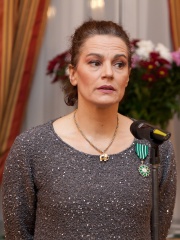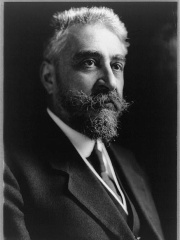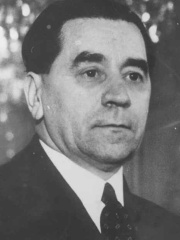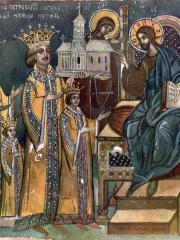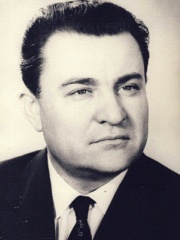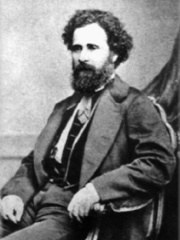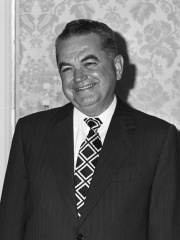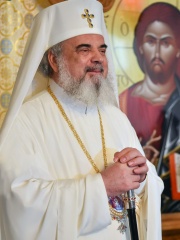Politician
Nicholas Alexander of Wallachia
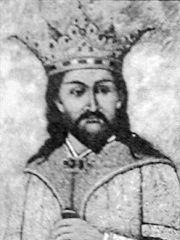
 Nicholas Alexander of Wallachia
Nicholas Alexander of Wallachia
Nicholas Alexander (Romanian: Nicolae Alexandru c. 1300 – 16th November 1364) was the second Voivode of Wallachia. His birthdate is uncertain, although according to popular theory he was born around the turn of the 14th century. He co-ruled the principality with his father Basarab from 1344 until his father's death in 1351 or 1352; he then ruled alone until his death in 1364. Read more on Wikipedia
His biography is available in 22 different languages on Wikipedia (up from 21 in 2024). Nicholas Alexander of Wallachia is the 9,126th most popular politician (down from 8,827th in 2024), the 177th most popular biography from Romania (down from 164th in 2019) and the 79th most popular Romanian Politician.
Memorability Metrics
Page views of Nicholas Alexander of Wallachia by language
Among Politicians
Among politicians, Nicholas Alexander of Wallachia ranks 9,126 out of 19,576. Before him are John George II, Prince of Anhalt-Dessau, István Horthy, Ezzo, Count Palatine of Lotharingia, Rafael Carrera, Alberts Kviesis, and Meleager. After him are Stanisław Poniatowski, Jacob Schiff, Danilo Ilić, Gerry Adams, Bathilde d'Orléans, and Quintus Lutatius Catulus.
Most Popular Politicians in Wikipedia
Go to all RankingsJohn George II, Prince of Anhalt-Dessau
1627 - 1693
HPI: 62.16
Rank: 9,125
István Horthy
1904 - 1942
HPI: 62.15
Rank: 9,126
Ezzo, Count Palatine of Lotharingia
955 - 1034
HPI: 62.15
Rank: 9,127
Rafael Carrera
1814 - 1865
HPI: 62.15
Rank: 9,128
Alberts Kviesis
1881 - 1944
HPI: 62.15
Rank: 9,129
Meleager
320 BC - 279 BC
HPI: 62.15
Rank: 9,130
Nicholas Alexander of Wallachia
HPI: 62.15
Rank: 9,131
Stanisław Poniatowski
1676 - 1762
HPI: 62.15
Rank: 9,132
Jacob Schiff
1847 - 1920
HPI: 62.15
Rank: 9,133
Danilo Ilić
1891 - 1915
HPI: 62.15
Rank: 9,134
Gerry Adams
1948 - Present
HPI: 62.15
Rank: 9,135
Bathilde d'Orléans
1750 - 1822
HPI: 62.14
Rank: 9,136
Quintus Lutatius Catulus
119 BC - 60 BC
HPI: 62.14
Rank: 9,137
In Romania
Among people born in Romania, Nicholas Alexander of Wallachia ranks 177 out of 844. Before him are Nicolae Grigorescu (1838), Ulpia Severina (300), Bálint Bakfark (1507), Crin Antonescu (1959), Lucien Goldmann (1913), and Octavian Goga (1881). After him are Ana Blandiana (1942), Constantin Prezan (1861), Mihaela Peneș (1947), Simon Hollósy (1857), Serge Klarsfeld (1935), and Maia Morgenstern (1962).
Others born in Romania
Go to all RankingsNicolae Grigorescu
PAINTER
1838 - 1907
HPI: 62.30
Rank: 171
Ulpia Severina
POLITICIAN
300 - Present
HPI: 62.29
Rank: 172
Bálint Bakfark
COMPOSER
1507 - 1576
HPI: 62.26
Rank: 173
Crin Antonescu
POLITICIAN
1959 - Present
HPI: 62.25
Rank: 174
Lucien Goldmann
PHILOSOPHER
1913 - 1970
HPI: 62.22
Rank: 175
Octavian Goga
POLITICIAN
1881 - 1938
HPI: 62.20
Rank: 176
Nicholas Alexander of Wallachia
POLITICIAN
HPI: 62.15
Rank: 177
Ana Blandiana
WRITER
1942 - Present
HPI: 62.13
Rank: 178
Constantin Prezan
MILITARY PERSONNEL
1861 - 1943
HPI: 62.08
Rank: 179
Mihaela Peneș
ATHLETE
1947 - 2024
HPI: 62.07
Rank: 180
Simon Hollósy
PAINTER
1857 - 1918
HPI: 61.98
Rank: 181
Serge Klarsfeld
SOCIAL ACTIVIST
1935 - Present
HPI: 61.89
Rank: 182
Maia Morgenstern
ACTOR
1962 - Present
HPI: 61.86
Rank: 183
Among Politicians In Romania
Among politicians born in Romania, Nicholas Alexander of Wallachia ranks 79. Before him are Ion I. C. Brătianu (1864), Gheorghe Tătărescu (1886), Petru Rareș (1487), Ulpia Severina (300), Crin Antonescu (1959), and Octavian Goga (1881). After him are Ilie Verdeț (1925), Ion C. Brătianu (1821), Ignaz von Born (1742), Constantin Dăscălescu (1923), Patriarch Daniel of Romania (1951), and Alexander I Aldea (1397).
Ion I. C. Brătianu
1864 - 1927
HPI: 62.56
Rank: 73
Gheorghe Tătărescu
1886 - 1957
HPI: 62.55
Rank: 74
Petru Rareș
1487 - 1546
HPI: 62.39
Rank: 75
Ulpia Severina
300 - Present
HPI: 62.29
Rank: 76
Crin Antonescu
1959 - Present
HPI: 62.25
Rank: 77
Octavian Goga
1881 - 1938
HPI: 62.20
Rank: 78
Nicholas Alexander of Wallachia
HPI: 62.15
Rank: 79
Ilie Verdeț
1925 - 2001
HPI: 61.83
Rank: 80
Ion C. Brătianu
1821 - 1891
HPI: 61.73
Rank: 81
Ignaz von Born
1742 - 1791
HPI: 61.67
Rank: 82
Constantin Dăscălescu
1923 - 2003
HPI: 61.50
Rank: 83
Patriarch Daniel of Romania
1951 - Present
HPI: 61.21
Rank: 84
Alexander I Aldea
1397 - 1436
HPI: 61.02
Rank: 85
